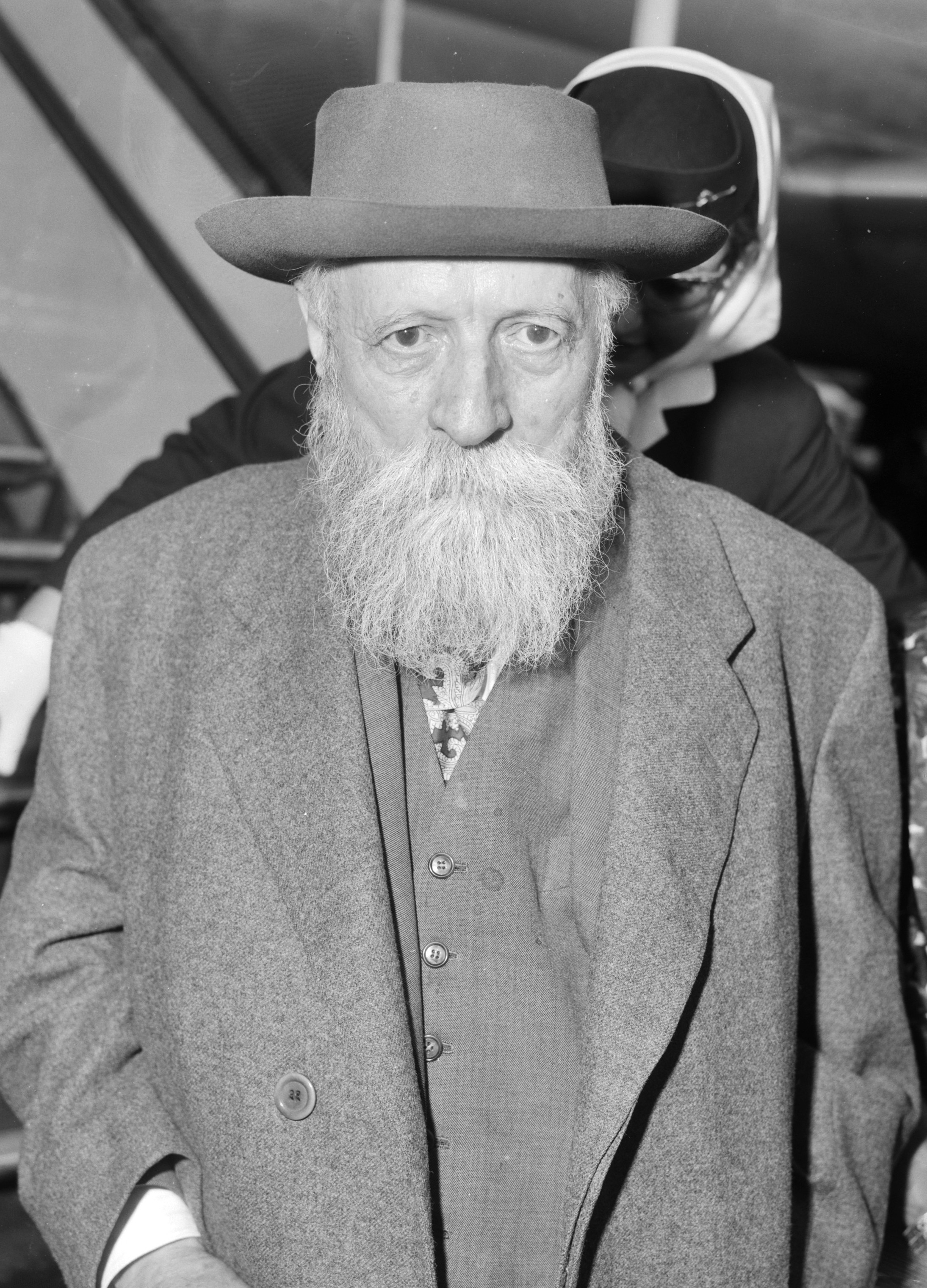Martin Buber: Citations en anglais
Source: Between Man and Man (1965), p. 148
Source: Between Man and Man (1965), p. 152
“Egos appear by setting themselves apart from other egos.”
I and Thou (1923)
Between Man and Man (1965), p. 15
Between Man and Man (1965)
Source: Between Man and Man (1965), p. 147
Source: What is Man? (1938), p. 180
Contexte: When we see a great man desiring power instead of his real goal we soon recognize that he is sick, or more precisely that his attitude to his work is sick. He overreaches himself, the work denies itself to him, the incarnation of the spirit no longer takes place, and to avoid the threat of senselessness he snatches after empty power. This sickness casts the genius on to the same level as those hysterical figures who, being by nature without power, slave for power, in order that they may enjoy the illusion that they are inwardly powerful, and who in this striving for power cannot let a pause intervene, since a pause would bring with it the possibility of self-reflection and self-reflection would bring collapse.
"Our Reply" (September 1945), as published in A Land of Two Peoples : Martin Buber on Jews and Arabs (1983) edited by Paul Mendes-Flohr, p. 178
Variant translation: Only a true peace with neighboring peoples can render possible a common development of this portion of the earth as a vanguard of the awakening of the Near East.
Source: Between Man and Man (1965), p. 178
“Life, in that it is life, necessarily entails justice.”
"Politics and Morality" in Be'ayot (April 1945), as published in A Land of Two Peoples : Martin Buber on Jews and Arabs (1983) edited by Paul Mendes-Flohr, p. 169
Source: Eclipse of God: Studies in the Relation Between Religion and Philosophy (1952), p. 34
Variante: An example may clarify more precisely the relation between the psychologist and the anthropologist. If both of them investigate, say, the phenomenon of anger, the psychologist will try to grasp what the angry man feels, what his motives and the impulses of his will are, but the anthropologist will also try to grasp what he is doing. In respect of this phenomenon self-observation, being by nature disposed to weaken the spontaneity and unruliness of anger, will be especially difficult for both of them. The psychologist will try to meet this difficulty by a specific division of consciousness, which enables him to remain outside with the observing part of his being and yet let his passion run its course as undisturbed as possible. Of course this passion can then not avoid becoming similar to that of the actor, that is, though it can still be heightened in comparison with an unobserved passion its course will be different: there will be a release which is willed and which takes the place of the elemental outbreak, there will be a vehemence which will be more emphasized, more deliberate, more dramatic. The anthropologist can have nothing to do with a division of consciousness, since he has to do with the unbroken wholeness of events, and especially with the unbroken natural connection between feelings and actions; and this connection is most powerfully influenced in self-observation, since the pure spontaneity of the action is bound to suffer essentially. It remains for the anthropologist only to resign any attempt to stay outside his observing self, and thus when he is overcome by anger not to disturb it in its course by becoming a spectator of it, but to let it rage to its conclusion without trying to gain a perspective. He will be able to register in the act of recollection what he felt and did then; for him memory takes the place of psychological self-experience. … In the moment of life he has nothing else in his mind but just to live what is to be lived, he is there with his whole being, undivided, and for that very reason there grows in his thought and recollection the knowledge of human wholeness.
Source: What is Man? (1938), pp. 148-149
Source: Eclipse of God: Studies in the Relation Between Religion and Philosophy (1952), p. 6
Source: Between Man and Man (1965), p. 151
Source: Between Man and Man (1965), p. 178 -->
“Greatness by nature includes a power, but not a will to power.”
Source: Between Man and Man (1965), p. 150
Source: Between Man and Man (1965), p. 33
“In the presence of God himself man stands always like a solitary tree in the wilderness.”
Source: For The Sake of Heaven (1945), p. 95
“It is the highest service to submit the evil impulse to God through the power of love.”
Source: For The Sake of Heaven (1945), p. 45
“As the oil is in the olive, so is the teshuvah, repentance, hidden within sin.”
Source: For The Sake of Heaven (1945), p. 44
Source: For The Sake of Heaven (1945), p. 44
Source: For The Sake of Heaven (1945), p. 45
